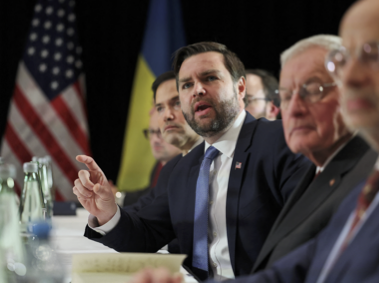In the next few decades, what’s likely to have the biggest impact on North American economies — agriculture, manufacturing or digital trade?
As rhetoric about local content rules for automakers and dispute resolution processes for farmers heats up the North American Free Trade Agreement (NAFTA) renegotiation talks, it’s worth keeping in mind that while trade in goods has flattened, internet-enabled commerce and cross-border data flows have exploded over the past three decades. In 2014, data flows across borders contributed US$2.8 trillion to the global economy, more than trade in goods, according to a report from the McKinsey Global Institute.
Information flows and e-commerce are poised to become an even larger component of international trade. By 2025, the explosion of data generated by the Internet of Things phenomenon alone could have an annual impact on the global economy of up to US$11.1 trillion, according to a study from the E15 Initiative, a global trade research group. In 2012, the Boston Consulting Group projected that the internet economy — already large enough to be the world’s fifth-largest economy, bigger than Germany’s national economy — would grow eight percent a year in developed countries and 18 percent in the developing world.
Defining Digital Trade
Given the massive impact of digital flows, the NAFTA renegotiations offer a “huge opportunity to define digital trade” and set the rules that govern it, said Susan Ariel Aaronson, a trade expert and senior fellow at the Centre for International Governance Innovation.
And the stakes are not just economic, she points out. How countries regulate data flows can have implications for human rights, cyber security, privacy, access to information and political participation by citizens. “You pull on one string, and it’s going to have effects on the fabric of the whole,” Aaronson said.
For trade negotiations, economic impacts tend to be primary. “Getting the rules right on digital trade is important for the US when you think about where a lot of the jobs and the growth are going to come from,” said Josh Meltzer, a senior fellow at the Brookings Institution. Digital trade has helped the United States add as many as 2.4 million jobs by boosting productivity and lowering costs, a study from the US International Trade Commission found in 2014.
While Canada, Mexico and the United States have different priorities on digital trade, experts close to the NAFTA negotiations say all three countries agreed to use guidelines laid out in the Trans-Pacific Partnership (TPP) — the first trade agreement to include binding language on information flows — as a starting point. “This is an area where the negotiations are going quite well and the parties actually have been able to find some common ground,” said Kellie Meiman Hock, a managing partner at McLarty Associates, a Washington, DC-based strategic consultancy.
Taking the Lead
Although the Trump administration withdrew the United States from the TPP, some of that agreement’s rules on digital trade echo the objectives outlined by the US Trade Representative (USTR) for the NAFTA renegotiations. The USTR objectives centre on prohibiting signatories from engaging in five activities:
• imposing customs duties on digital products;
• treating digital products in a discriminatory manner;
• restricting cross-border data flows;
• requiring the use or installation of local computing facilities; and
• mandating the disclosure of computer source code.
In addition, the United States is pushing for an objective not included in the TPP: the inclusion of financial services in the commitment to maintain free flows of data and prohibit localization, as the mandated use of local computing facilities is known. While the TPP is not dead — 11 countries are still parties to negotiations over the accord — the US absence from the agreement means the NAFTA talks offer the United States its best opportunity to shape the global rules for digital trade.
“If the US doesn’t take the lead on that issue, it’s going to be hard to develop a framework for trade rules which are optimal,” said Meltzer. “NAFTA blowing up would be another missed opportunity.”
Impact of a NAFTA Collapse
Even as negotiators met in Washington in early October for the fourth round of NAFTA talks, US President Donald Trump said he was still considering withdrawing from the 23-year-old agreement — a move trade experts said could be extremely damaging.
The United States is home to seven of the world’s 10 top internet companies by market capitalization, and has advanced an agenda of free digital flows that’s very different from the closed, tightly controlled environment in China, where the other three top companies are headquartered. “How will digital trade disciplines evolve if the US voice in trade negotiations is absent?” asked Meiman Hock.
A NAFTA collapse would hurt both digital trade in particular and the stability and predictability of international trade overall, said Meltzer. Aaronson put the consequences in starker terms. “The US has never in its history withdrawn from a trade agreement,” she said. If Trump makes good on his threats, “We’re certainly not going to be the leader any longer,” she added. “Who’s going to trust us? Who’s going to want to negotiate with us?”
Scuttling the agreement would also cost jobs, according to a study from ImpactECON, a Boulder, Colorado-based economic and trade analysis consultancy. The United States would lose as many as 256,000 net jobs, while Mexico could lose 951,000 and Canada 125,000, the study found. In a published comment on the NAFTA negotiations, IBM, which has 380,000 employees around the world, said much of its job and revenue growth in the United States “is in new areas based on data-driven innovation, such as artificial intelligence, cognitive computing and cloud-based solutions…These jobs depend on the ability of IBM to collect, transfer, process and store data across borders to serve our clients around the world.”
In addition to its economic impacts, other digital trade policy topics up for discussion in the NAFTA meetings include how to regulate electronic transactions, ensure consumers are protected, safeguard personal information, control spam and handle cyber security concerns.
“The stakes are very high to get it right,” said Aaronson. “We need to find some way to govern digital flows that encourages them but allows nations exceptions for the rules, but also allows nations to punish bad actors who use information flows to send malware, which can undermine human rights.”
For many businesses, and technology companies in particular, it’s clear that data flowing across borders has significant value that rises as the volume of those flows increases. “When people talk about the digital economy, they’re really talking about the whole economy, and they’re really talking about a fundamental driver for economic growth in the world,” said Carl Schonander, senior director of international public policy at the Software & Information Industry Association, in an interview. “Data underpins basically all economic life and trade agreements need to reflect that reality.”
If the United States doesn’t walk away from the accord, a revised NAFTA could be the first free trade agreement to incorporate that imperative.



